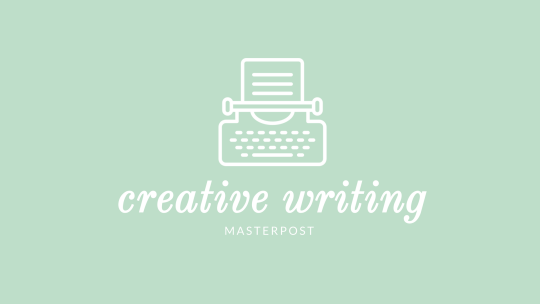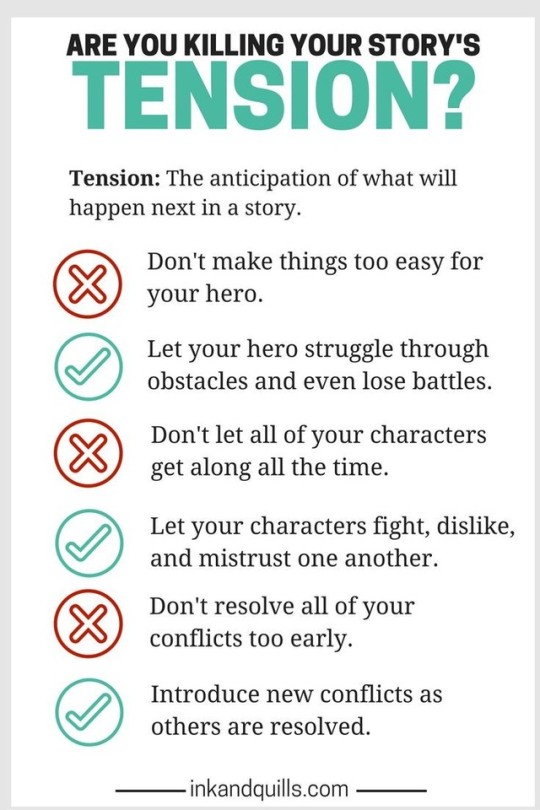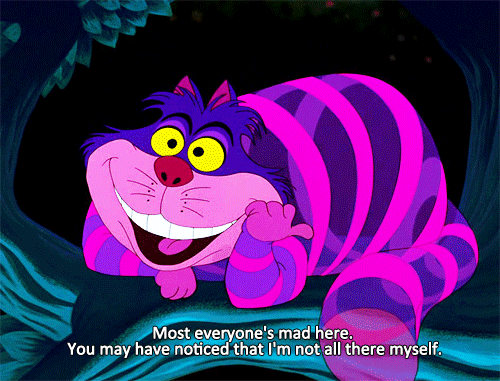Text
Announcement!
Hi guys! Sorry I’ve been kind of MIA - college has been really busy, especially in the midst of COVID-19. I just wanted to hop on here and make a quick announcement:
I’m now offering copyediting services! Fiction, essays, poems, etc. - I’m open to looking at any piece of writing. You can find my specific services and prices here!
I hope everyone is doing well and taking time for themselves during this weird little era.
#announcement#copyediting#copyediting services#proofreading#proofreading services#writers#writers on tumblr#artists on tumblr#creative writing#writing help
24 notes
·
View notes
Text
Schizo Spectrum Disorders + Disorganised Speech
People in the schizo spectrum can be hard or sometimes frustrating to talk to. People who are uninformed about schizophrenia and other psychotic disorders can mistake this as rudeness, silliness, or inebriation but it’s actually one of the symptoms of a debilitating mental disorder.
Disorganised speech often occurs in a schizophrenic person leaving their speech short, baffling or incomprehensible. It can display itself as random topic changes, gibberish, slurring, making up random words, word salad, and rapid and incoherent speech which makes the person hard to understand.
I complied a list of speech/thought disorders found in people on the schizophrenic spectrum with some basic definitions.
Most of these can be found in other mental disorders and you should bring it up with your doctor if you experience any of these often, without your control and without cause or stimulant (i.e. drug use, drunkenness, lack of sleep etc.)
ALOGIA
also known as poverty of speech. this is when there’s a lack of spontaneous speech. it can display itself in short and monosyllabic responses that trail off or end by the second syllable. it leads to an inability to make small talk or carry on simple conversation. in extreme cases it can even lead to partial mutism
( e.g. person 1: “hey how’s it going?”
person 2: “fine.”
person 1: “what do you want for dinner?”
person 2: [shrugs]
person 1: maybe we should go out, get chinese.
person 2: [shrugs]
person 1: do you want something else
person 2: no )
ECHOLALIA
this is the repetition of noises/words/phrases/sentences made by another person. persons experiencing echolalia often repeats questions or sentences directed to them and can make it difficult to carry on a conversation
( e.g. person 1: i have to go to the bathroom
person 2: go to the bathroom
person 1: can you watch my purse for me?
person 2: watch my purse for me
person 1: why are you doing that?
person 2: why am i doing that? )
THOUGHT BLOCKING
this is when there’s an abrupt pause in someone’s train of thought wherein the person often forgets the original topic. it can lead to multiple topics being covered in one sentence or to an unexpected and abrupt end to a conversation mid sentence
( e.g. i like that new song by [pause] … i wish i didn’t cut my hair. )
CLANGING
this is speech characterised by compulsive grouping of words by rhyming or alliteration. there’s no logic or reason in this sort of speech
( e.g. we have to go get green grass grisly grey. (or) when will we wait with words which wing were whims? )
NEOLOGISM
this is the creation of new words often in the form of gibberish or nonsense babbling. it can happen as full sentences or a normal sentence that veers off into it
( e.g. meaning to say “i want to go to sleep i’m tired” and actually saying “i want to go to sleep illa craviges”)
SCHIZOPHASIA/WORD SALAD
this is a bunch of random words strung together to no reason or purpose and while it can sometimes be vaguely related to the topic at hand, it comes out in a confusing array of disconnected words
( e.g. i want to get the purple apple match from the towel chair )
PRESSURE OF SPEECH
this is rapid paced, erratic, frantic speech. it’s usually loud and frenzied. it’s almost impossible to get the person experiencing it to pause and the listener will most likely not get a word in edgewise.
PERSEVERATION
this is the repetition of one word or phrase over and over after they’ve ceased to be relevant or appropriate to the situation.
( e.g. person 1: i’m going to take a walk in the park later
person 2: walk in the park
person 1: do you wanna come with?
person 2: walk in the park
[20 minutes later]
person 1: i’m gonna put on the kettle. do you want some tea?
person 2: walk in the park
NOTE: feel free to reblog whether or not you’re on the spectrum or have any mental illnesses at all. way too many people assume that schizo spectrum people are just rude or belligerent or mocking or joking when we’re really just exhibiting symptoms of our disorder.
5K notes
·
View notes
Photo

101K notes
·
View notes
Text
I am a(n):
⚪ Male
⚪ Female
🔘 Writer
Looking for
⚪ Boyfriend
⚪ Girlfriend
🔘 An incredibly specific word that I can't remember
409K notes
·
View notes
Note
Hi, I really like your blog. I saw you made some posts about novel outlines and wanted to ask if there was one you preferred to use. I am trying out the 8 Point Arc one as well as a chapter-by-chapter one and am unsure. Are there any that you think are better for making into a story, or any suggestions for more detailed outlines I could use since they seem to work better for me. Thanks
Hi!
I think it’s specific to each person! People work better with varying degrees of outlining and planning. Personally, I don’t tend to outline much in my own writing - the most I’ll do is make a spider chart with the prospective title of the work in the center and various paths the story could go down spread around it. Other than that, I don’t do much planning or plotting unless I get stuck somewhere in my story. If I get stuck, I’ll write out what important plot points have already happened, write out what I want my ending to be (typically I have at least a general idea of how I want a story to end, which comes in handy when I get blocked), and I’ll write down plot points that could bridge the gap between the two.
Basically, which outlining method you use (if any at all) is purely preference, and is also trial and error. I encourage you to try different things - eventually you’ll try something that will stick!
Best of luck! I hope this was at least somewhat helpful. If you need anything else, please feel free to ask.
19 notes
·
View notes
Text

180K notes
·
View notes
Text
Writing Engaging Antagonists

@devils-songbirb asked:
HI! I really love your advice!! I was wondering how I could write a good villain? I’ve noticed that in most of the stories I write the antagonist always seems to have the same motives and I don’t know how to alter it enough so that it’s different and interesting.
Before we get started, I want to clarify two things:
- Antagonists can be of any moral alignment. They can be also be non-human things, such as monsters, nature, inner demons, etc. The antagonist is simply the primary thing your protagonist fights against.
- For the course of this article I will be talking about villainous antagonists who are human or human-like. You could use most of these tips for villainous protagonists as well.
There are two broad categories of villains: sympathetic and unsympathetic. I’ll talk a little about both, but I primarily write and prefer to see the former, so that will be the focus.
1. The Unsympathetic Villain.
Unsympathetic villains are evil for the sake of evil.
While these villains can be horrifying when done well, they tend to be the least intimidating type of antagonist. The most common mistake is to try to make an unsympathetic villain feel as heinously villainous as possible.
A villain who oozes darkness and villainy and nothing else will come across like a machine with a program that just reads: Be Evil. The genuine threat of these characters is often lost, because there’s no real life equivalent. In order to pull a villain like this off, the story must either perfectly suspend our disbelief or find a way to connect the villain to an antagonistic force the reader experiences in their own lives.
Often, the fictional antagonists you’ve sincerely wanted to murder are self-serving, hateful people you’ve met similar, real life versions of before, doing the things those real life versions continually get away with.
Since I don’t write unsympathetic villains often, I won’t write a more detailed guide on them, but I encourage you to think deeper into why some unsympathetic villains work while others don’t. Consider your favorite unsympathetic villains. How does the story present this villain? When have they drawn up intense emotions in you? Where did these emotions come from, and why?
2. The Sympathetic Villain.
The sympathetic villain is intimidating not because they’re evil, but because they’re both evil and human.
They represent what every one of us could easily become under the right circumstances.
They prove that your hero is not good simply because they fell into that alignment by chance, but rather because they chose it.
They show that a little good and evil exist inside every one of us, and it’s what we decide to act on and what we choose to compromise for which determines who we become.
Generally, they’re more interesting and fleshed out than un-sympathetic villains.
How do we write an interesting, sympathetic villain?
Keep reading
3K notes
·
View notes
Text
A Killer First Chapter

Anonymous asked:
Do you have any advise on how to open a story? I have all my characters and my plot and my conflict and everything but I don’t know how to start. How to keep a reader hooked and interested enough to keep going.
This is a little ironic, because I’m about to rewrite my opening three chapters for The Warlord’s Contact from scratch for about the tenth time. But practice does make perfect, and boy have I learned a lot through this process.
Sometimes you look at a story and you just know how it needs to open. It’s the most obvious choice in the world, and it’s clear why no other option would work.
Unfortunately, that’s not often the case. Usually, the beginning to your book will take preplanning and rewriting and replanning and bit more rewriting, and all the while you’ll never quite be sure you chose the best spot to open to, or the right characters to introduce, or the proper setting.
Here are a few specific methods of thought for tackling your first chapter…
Keep reading
3K notes
·
View notes
Text
Harsh opinions, be forewarned:
Courteous critique isn’t just about avoiding hurt feelings.
Arrogance in critiquing can (and often will) make you look like a fool.
I talked a bit about the flip side of this situation in my article on giving critique, but lets look at it again from a different angle. Say in a round of feedback a writer gets these responses:
“It was so suspenseful! Especially the part where…”
“This was my favorite chapter so far. The pacing was fantastic and I could feel the protagonist’s pain during…”
“I couldn’t put it down. I felt like I didn’t breath through the entire section where…”
“I’m so emotional right now; you have no idea what this scene did to me! That line where…”
“This chapter was too bland to invoke any emotion in a reader. It was too poorly paced and had too many issues with the prose to allow for any sort of immersion. It might actually be suspenseful if you fixed all the…”
How much do you trust that final critique, after reading them all?
Maybe the final reader really didn’t get any emotion or suspense out of the scene, and there is almost always something the writer can tweak to make it better, but critique written in absolutes — critique which assumes, whether purposefully or not, that it’s the ultimate authority on the issue — makes the critiquer sound both ignorant and arrogant in the light of any contradiction.
The same feedback written in a courteous manner feels authentic and helpful:
“This chapter didn’t effect me emotionally in the way intended. The situations within it were still interesting, even if I couldn’t feel the suspense while reading, so my disconnect was probably caused by the prose. It might invoke a much stronger reaction from me if…”
The difference here, is that the critiquer (despite possibly being someone of great insight or writing ability) shows they understand that the feedback they’re giving, while valid and definitely worthwhile, is still not the ultimate source of writing knowledge or the only way a reader might interpret the scene.
tl;dr Arrogance and lack of courtesy in critiquing doesn’t just hurt the person asking for feedback, but also severely damaged your reputation as a worthwhile and knowledgeable critiquer, and can cause people to discount your words entirely.
3K notes
·
View notes
Text
Remember that with each first draft you have:
Some fantastic writing, some writing which you might not have even realized was beautiful when you wrote it, some writing which will still be there through rewrites and revisions because it was just that good.
Some terrible writing, writing that’s just absolutely awful and you’ll have to rework once or twice or even three times.
This is normal and okay.
Some days the words come at us like a glorious hurricane and carry us away, and other days that hurricane drowns us instead. It doesn’t mean you’re a bad writer. And it doesn’t mean you shouldn’t write on the bad days.
No word is worth less than any other in your rough draft, except for the words you didn’t write.
3K notes
·
View notes
Photo

Source: via Pinterest from inkandquills.com
3K notes
·
View notes
Text
Tips for Writing More Genuine Children (Part 2/3 - Language)
Now, just before we start. I’m talking about English speaking kids, I have very limited experience with bi-lingual kids or kids not having English as their first language.
Let’s talk about how kids talk.
Quick, general statements.
~Kids are either dead silent or nonstop talking. It flips so quickly.
~SO MANY QUESTIONS.
~Some kids are shy some arent. Depends on the situation/who’s around/what the kids like.
~As stated in Part 1, kids aren’t inherently dumb but they also don’t understand because of lack of context. Their language reflects that.
Also, development is different for some kids. Developing doesn’t reflect how smart they are, it’s just how it goes (like physical growth). In my experience, firstborns will talk more and earlier than siblings later.
Top Tip: Watch some YouTube videos (if you can stand them) aimed at the age of the children. This kind of language on those should be used in your fics. If they’re young (under 5) find some videos teaching them how to talk on YouTube to see where they should be.
Age 0-6Months
They’re not going to be talking. Okay. Even if they’re hella smart, it’s just not going to happen. Noises are much more likely, tears and whines when sad. Grumbling when angry. Just like adults.
But, they will respond to people. If someone’s angry and shouting they’re going to understand that and react accordingly (upset and scared). Loud noises will make it cry or it’ll look for the source of it’s name being called.
From here on out, kids are really literal and see patterns where an adult wouldn’t. An example is “daddy bye” to mean ‘dad’s leaving’. The baby isn’t saying ‘bye’ because it knows this is what we say to people leaving because it means something. There’s no reasoning behind it. But it’s said whenever someone leaves so that means that the word has something to do with leaving. This kind of thing carries on till about 8.
Age 6Months-2Years
Words! Yay!! Baby’s saying it’s first words, very often mommy/daddy or the name of their favorite toy. (Mine was Turtle). They’re not going to be using any advanced words or anything hard to pronounce.
Around 1 and a half is when they start using sentences. Usually, this means combining two/three words to mean something else. “Daddy bye” would mean ‘dad’s leaving’.
Also, they’re starting to understand words. In New Zealand, one of the first words kids learn is ‘Ta’ which basically means ‘give me that’. If you said to a 1-year-old ‘ta’ when they’re holding a toy they’re going to give it. (They might not want to but not the point)
Age 2Years-3Years
Now they’re talking! They’re going to be asking questions and responding to others. They know about 400 words at this point and can string together stories. (If they want to). This is also the stage where shyness becomes a trait in how they talk.
It’s not called the terrible twos for nothing. This age group knows how to ask for things and what they want. While we’re on the subject, tantrums. Kids don’t have tantrums for nothing. They’re upset and they don’t know how to deal with it or express their emotions. Screaming and crying generally gets this across and the best way to deal with them is staying calm and talking to them.
Questions as well. Just, constant questions. “Why? Why? Why? Why?”
Age 3Years-5Years
Basically just talking like an alien now. They can get their point across but sometimes their words are made up. An example of the ‘made up word’ would be run. A kid might say I ‘runned’ instead of ‘ran’ because that makes sense. It’s what we do to other words (-ed) but sometimes we don’t. The English language is full of little trips that kids get caught on.
Their sentences are 5-10 words at 3 and then continue growing as they get older. Especially if they’re in a school environment.
As they get older they’re going to be able to comprehend them, eg, answering where the dog went and who he saw. It’s basic fact, not a lot of emotion. But, they’re going to forget within a few hours. Also, they’re going to be telling stories like their dream or what happened at school.
NO MORE BABY TALK FROM HERE PEOPLE. I BEG YOU.
Age 5Years-7Years
Unless there’s an actual physical problem (tied tongue, stuff like that), there should no longer be a lisp. The child should be able to talk freely and easily.
Stories are more detailed, sometimes more than needed (like colours of clothes or weather. Doesn’t impact the story) and they’re going to remember more stories.
They’re still may get caught up on some tense changes like before but much less. Also, they will now input their own emotions onto stories and answer the why questions when doing reading compression. Here’s where they should be able to read and write at a very basic level.
This stage of life is boarding on adult level speaking. But they’re still going to be using general words and speak more like a layman than a specialist.
Age 7Years-9Years
They’re basically speaking like little adults.
They can control their pitch and volume well, they can change tenses and they’re using specific terms - especially about stuff they learned at school (so, science or English conventions “that’s a metaphor”). Complex sentences are now used with ease. Stories are told well and they’re going to remember what they said a lot better.
And we’re done!
4K notes
·
View notes
Text
If a scene feels awkward, slow, or just not-quite-right…
(1) Try taking a piece of action and plopping it in the middle of a drama scene, or plop a piece of drama in the middle of an action scene. (Give your character something they need to overcome in order to get back to their goal.)
(2) Try taking out supporting characters who might be helping the POV character achieve their goal. (Make the POV character responsible for the goals and safety of all the characters involved.)
(3) Try upping the stakes just as the POV character realizes they’re going to fail. (Make the POV character give more effort then they originally wanted to or thought they could; make them sacrifice more to reach their goal.)
(4) Try rewriting the scene in a completely different, more suspenseful setting. (Give the characters a time limit, distractions, and/or the chance of being overheard/stopped/etc.)
Helpful things to consider along the way…
What goal does your POV character want to achieve in this scene? Who or what is stopping them from reaching this goal, and why?
Is your POV character developing, learning, and making decisive choices during this scene?
Are all your character’s emotions progressing naturally, and influencing their actions and decisions?
How does this scene impact the rest of the story? If you remove it from the story, what changes?
And if all else fails: Ask someone you trust to give you detailed feedback!
3K notes
·
View notes
Text
Lessons from the Disney Villains: Cheshire Cat

Not every villain has to be conventionally “evil”
Now, now, please put down your pitchforks and torches. Trust me, I understand that, nine times out of ten, when placed on an old school alignment chart, our antagonists fall into some spectrum of “evil”, be it lawful, neutral, or everyone’s favorite - chaotic. But this does not always necessarily have to be the case.
Throughout life, every person encounters an opponent, one with the intention to inhibit their inevitable success. However, there are those who we meet along the way without blatantly ill intent whose interactions with us can cause us to stumble, to stop, to question truth. These encounters may mean no malice, but nonetheless, they impede progress and serve as obstacles to overcome. Or, other times, they may leave the hero - and the hero’s audience - with an inexplicable, but irrefutable, sense of vexation.
This is the strength of the Cheshire Cat.
Let’s take a look at Cheshire Cat, shall we? At the outset of Alice’s journey in Alice in Wonderland, the audience is led to believe that Cheshire is a sort of ally of Alice’s. Harkening back to the Scarecrow of Wizard of Oz, he points our distressed heroine in the right direction - or so we believe. As every good villain does, Cheshire allows us to believe that, despite his unsettling quirks, he means our damsel well.
Despite this, once Alice reaches her destination at the Queen of Hearts’ Castle, Cheshire causes all sorts of chaos, from exposing the Queen’s bloomers to insulting the Queen on behalf of Alice. On one hand, his actions almost cause the death of the heroine. On the other hand, Cheshire’s intention appears not to be to doom Alice, but rather to simply stir up some trouble, make a little mischief, cause everyone to be just as mad as he himself is.

When writing antagonistic characters, we must ask ourselves: what is the intention behind their actions? Do they loathe those they impede, or do they hold simpler intentions? By no means must these intentions need be pure: Cheshire’s wish to upset the fragile balance of Wonderland certainly does not seem noble by any means. However, that does not mean their intent is to harm the protagonist. The protagonist is but a pawn to them, a means to an end. In some cases, their “toys” are but obstacles to push about the playing field until they reach their goal.
If Cheshire were a Dungeons and Dragons character, his alignment would likely fall much more along the lines of “Chaotic Neutral” than any sort of “Evil”. Despite this, he poses a serious threat to our heroine. So, is he a villain? A hero? A mentor gone wrong? Or does he exist somewhere in the middle: an entity without classification? Sure seems fitting for one such as he, no?
As authors, we must remember that not all enemies wish our heroes harm. Some people seek to manipulate the protagonist. Some seek only their own gain, whether it be helping the protagonist (even temporarily), or turning against them - or both, at different times. These people are not evil, nor should they be treated as such. Misguided? Maybe. Remember to fill your world with enemies of all sorts - not solely those wishing for world domination and the death of benevolence.

5K notes
·
View notes
Text
Fun fact:
Just because a story ends up needing more work than you thought it would does not mean you’re a bad writer or that your story it isn’t still worthwhile and fantastic.
Writing is an impossible craft to master.
But it’s still more than worth floundering through because if you keep going eventually you’ll come out the other side with something brilliant.
6K notes
·
View notes
Note
Hello! I was wondering if you had any links or tips for writing characters with distinct regional dialects?
Writing Accents and Dialects
Dialogue in fiction: How to write authentic dialects and foreign accents
How to Write Accents and Dialects
How to Give Your Character an Authentic Dialect
The Do’s and Don’ts of Dialects
Writing Dialogue in Accents and Dialect
The Uses and Abuses of Dialect
Dialogue: Writing Dialects and Accents
When Can You Include an Accent and Dialect in Your Dialogue?
Accents and Dialects
Writing Dialects
How to Write Accents and Dialects
Dialect and Contractions in Fiction
Writing Dialect in Fiction: a History and Study
Effective Dialogue: Accents and Dialects
How to Write Dialects, Accents, and Slang
Talking the Talk: Writing in Dialect

5K notes
·
View notes
Text
short sentence prompts part 2
“I’m sorry I scared you, I didn’t mean to.”
“Eyes on me.”
“How dare you?!”
“Please never stop smiling.”
“It’s starting.”
“Stop talking.”
“I’m stuck, I’m stuck!“
“You need to see this.“
“Do you understand now?”
“I want to, so badly… but I can’t tell you“
“I never want to see white walls ever again.”
“Criss cross it.”
“Tell me what you’re feeling.”
“I agree.”
“Stop harming yourself like this!”
“My heart beats for you.”
“Help.”
“I can’t wait to hug you.”
“Take it.”
“Don’t cry, baby.”
“Every inch of you is breathtaking.”
“No way in hell.”
“You died!”
“You got this.”
“Do not. Tempt. Me.”
“Cute, but still fucked up.”
“That’s not yours.”
“We are not friends!”
“Thank you for making up my mind for me.”
“Stop being so attractive!”
7K notes
·
View notes